Have you ever returned home, after a fun day spent in the great outdoors, only to find a tick latched somewhere on your body? If yes, you know just how unsettling it can be. If no, consider yourself lucky. Ticks are small, parasitic pests that feed on the blood of warm-blooded animals, including humans and our pets. What’s worse, in doing so, ticks can transmit a variety of harmful bloodborne diseases, some of which there are no known cures for. Therefore, if you are an Augusta property owner, you need to know the steps you can take to help keep ticks out of your yard and home. Furthermore, you should also know some steps you can take to keep from picking up ticks while spending time in the great outdoors. Your health and safety could depend on it.
Identifying Common Area Ticks
There are over 800 species of ticks in the world. Here in Augusta, however, we only need to worry about a couple of them. The two most common ticks in the area are black legged deer ticks and American dog ticks. Blacklegged deer ticks grow to be about 1/8th of an inch long. They have orangish-brown bodies, and, as you might’ve guessed, black legs. American dog ticks grow anywhere from 1/8th to 5/8th of an inch long. They are typically reddish-brown in color and have whitish markings on their bodies. Both dog ticks and deer ticks have flat bodies that will swell up after they have fed on a blood meal. Deer ticks typically feed on a host for several days and then drop off. Dog ticks, on the other hand, tend to feed on one host for their entire life cycle.
How Ticks Get Around
Ticks prefer to live in areas with dense vegetation, high grass, and other thick brush in which they can hang out and wait for passing hosts. When a host passes by them, they will latch on, usually without the host ever knowing. While the host could potentially be a human or one of our pets, more often than not, ticks will latch on to various wildlife. This wildlife then brings the ticks into our yards and homes as they invade themselves. Therefore, effective tick control for your home involves steps to make your property less attractive and accessible to wildlife as well as ticks.
Threats Posed By Ticks
Because of the number of bloodborne diseases ticks have been known to transmit, they are considered to be dangerous. Some of these diseases are lifelong and can lead to further health issues. Some diseases spread by ticks include Lyme disease, tularemia, babesiosis, Rocky Mountain spotted fever, and many more. If you find a tick anywhere on your body, be sure to remove it promptly, and then monitor your health for any adverse side effects such as aching, fevers, rashes, muscle spasms, or stiffness. If you experience any adverse side effects, seek medical attention.
Tick Prevention For Both Home & Away
As stated, tick prevention for your home is all about making your yard less hospitable to both ticks and tick-carrying wildlife. This means:
- Keep your lawn well-manicured.
- Trim back any vegetation or bushes around your property’s perimeter.
- Keep all dense vegetation from overgrowing in your yard.
- Put up protective fencing around fruit and vegetable gardens.
- Pick up any fallen fruits or vegetables from your yard.
- Keep outdoor dining spaces free of food debris.
- Pick up uneaten pet food.
Additionally, some steps you can take to keep from picking up ticks while out in the world include:
- Stick to the centers of hiking trails.
- Avoid venturing in thick vegetation or high grass.
- Talk to your vet about tick control options for your pets.
- Inspect both you and your pets’ bodies for ticks before returning home.
For More Advice & Assistance
If you have any further questions regarding tick prevention for your property, or if you require assistance in dealing with ticks now, contact the professionals here at Bug Busterzzz Pest Control right away. Not only will we effectively eliminate any ticks from around your property, but we will also work with you to take the proper steps to keep ticks away from your property in the future. Don’t let ticks threaten the health and safety of your family. Give us a call now.

